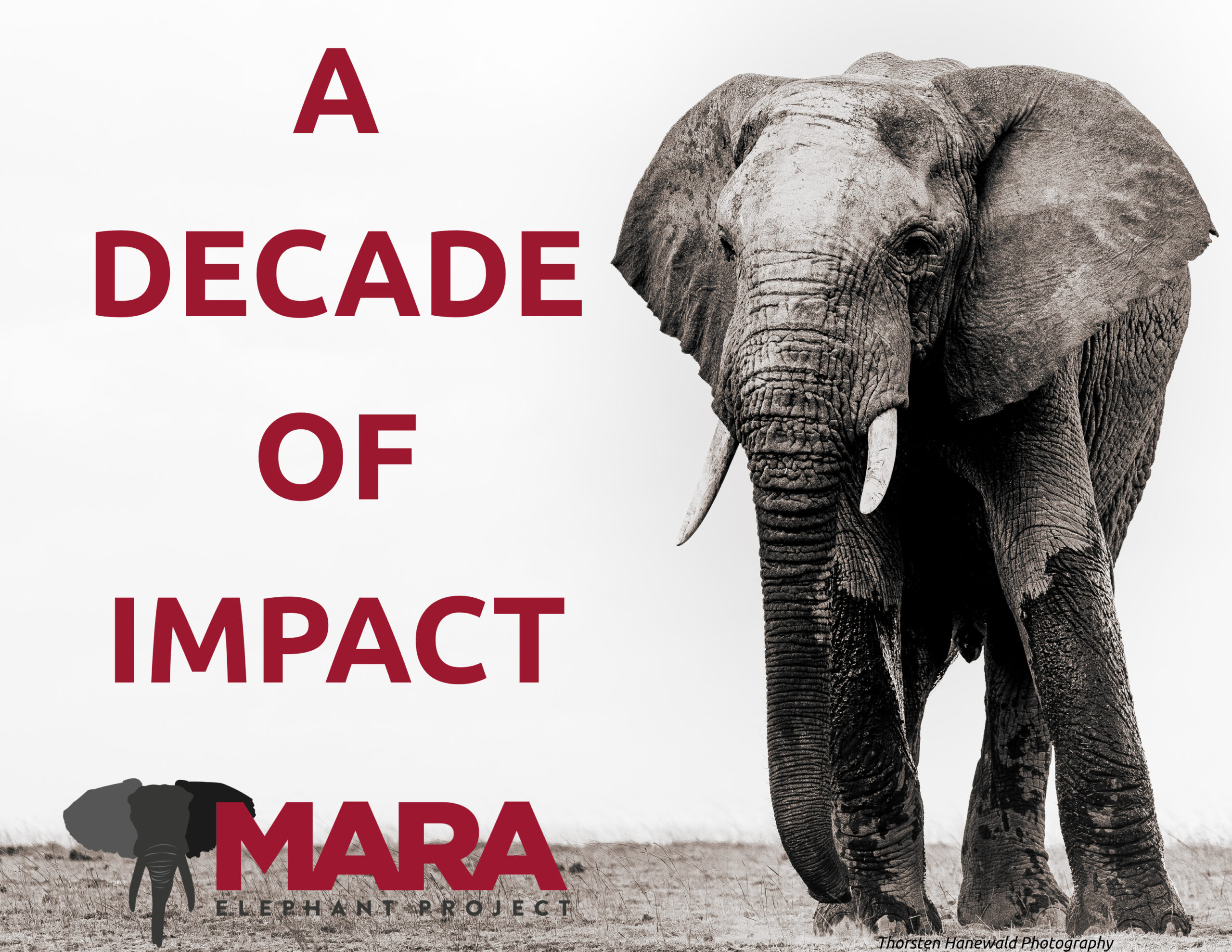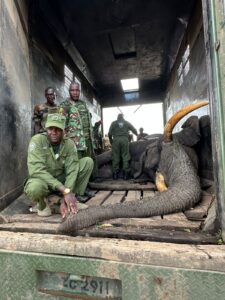The third quarter included many great moments, but the one that stood out the most was the outpouring of support as Mara Elephant Project celebrated 10 years of operation on September 12. We were overwhelmed with the support from our staff, trustees, partners and donors to help us celebrate this milestone. Thank you to everyone who joined in, and we look forward to the next 10 years with all of you by our side.
On that very same day, I had the chance the witness a manyatta in Loita that was one of the more impactful experiences I’ve had at MEP. The community members in Loita have been supportive of MEP’s efforts to protect the precious forest since the beginning. We currently have two full-time Loita ranger units supported by Lori Price dedicated to helping this community combat bushmeat poaching, habitat destruction and resolve conflict all happening on their doorstep.
This manyatta will last for up to six months and MEP provided toilet facilities for the gathering and supported it with food, masks and hand sanitizer.
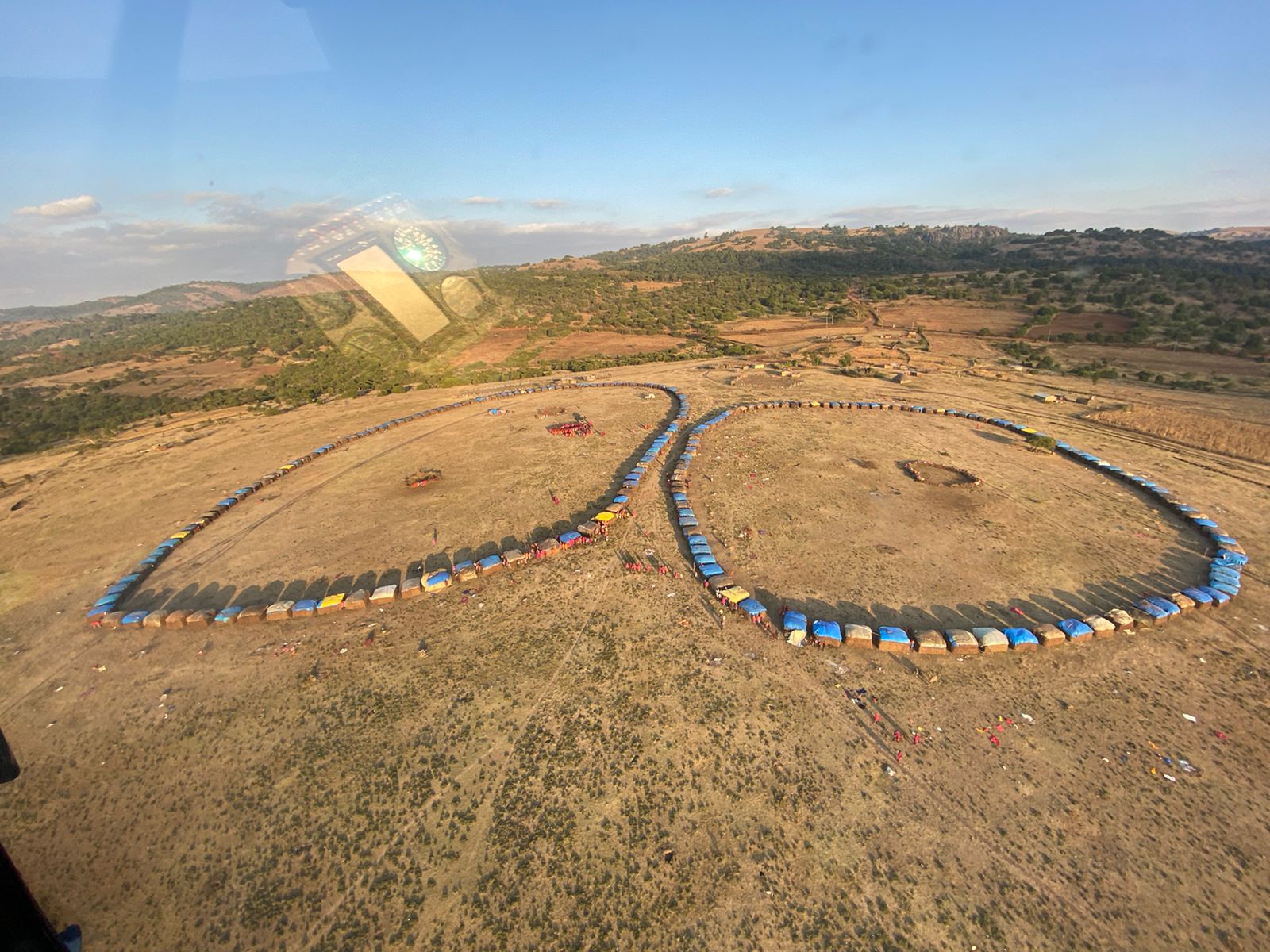

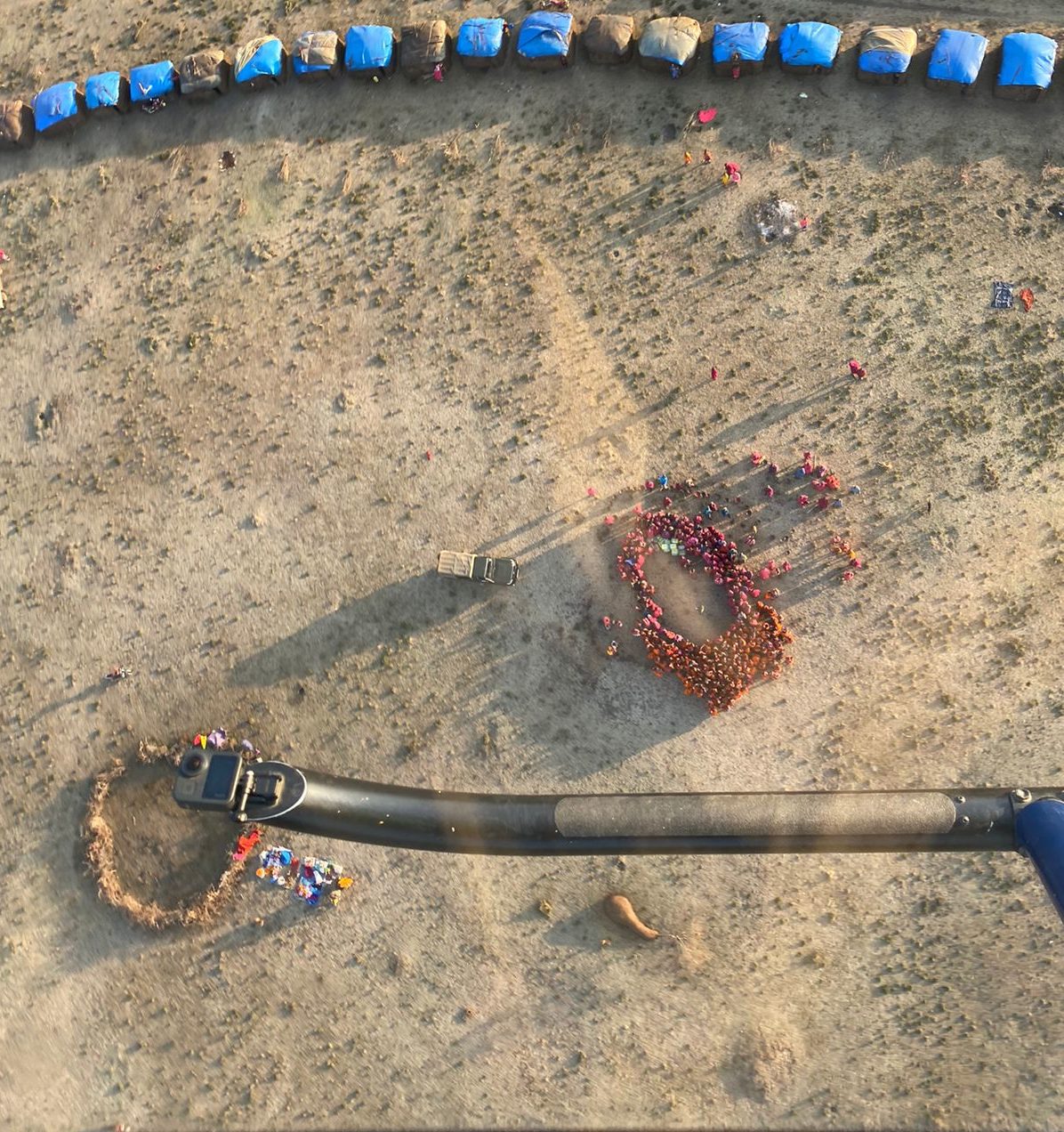
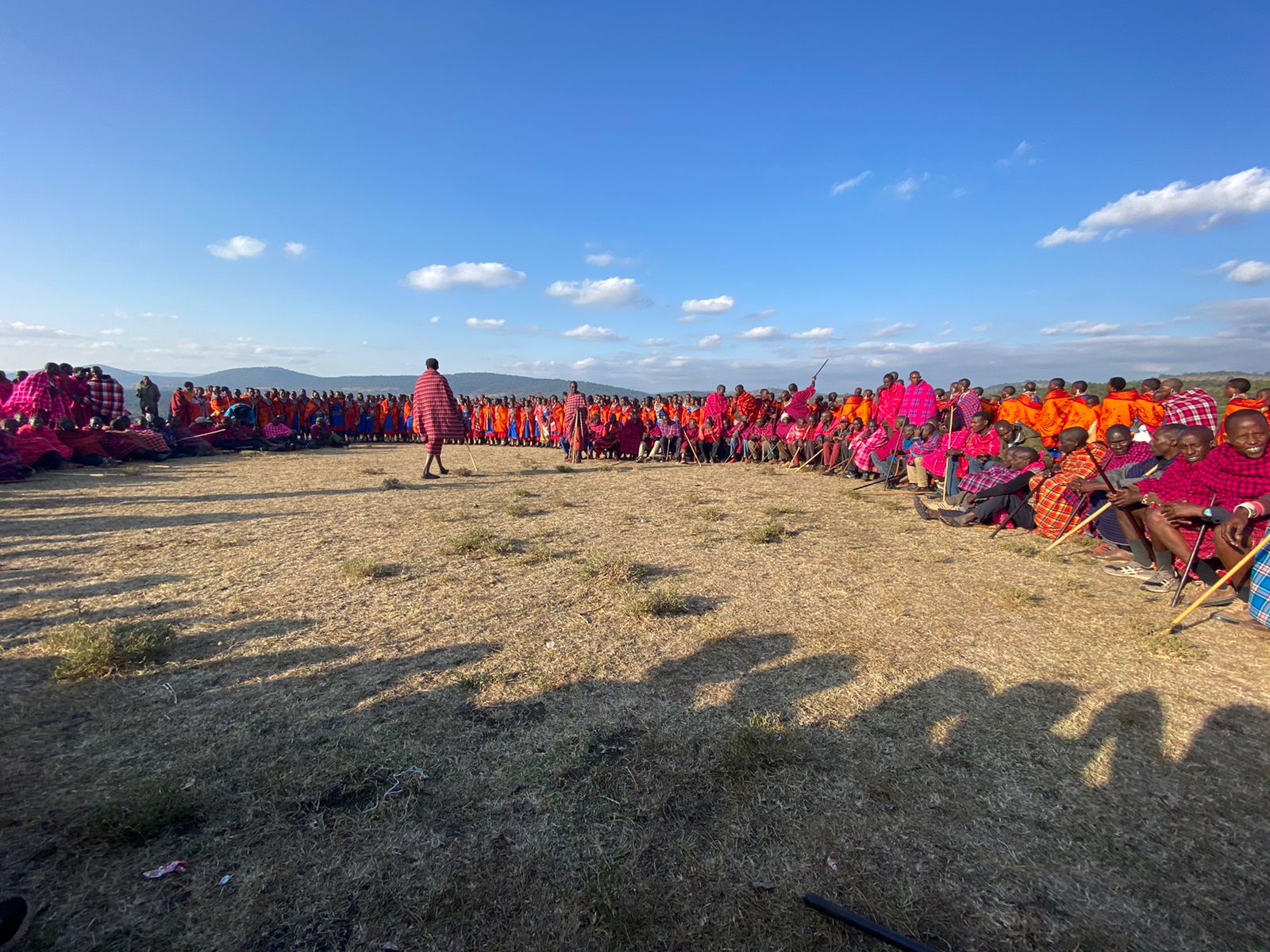
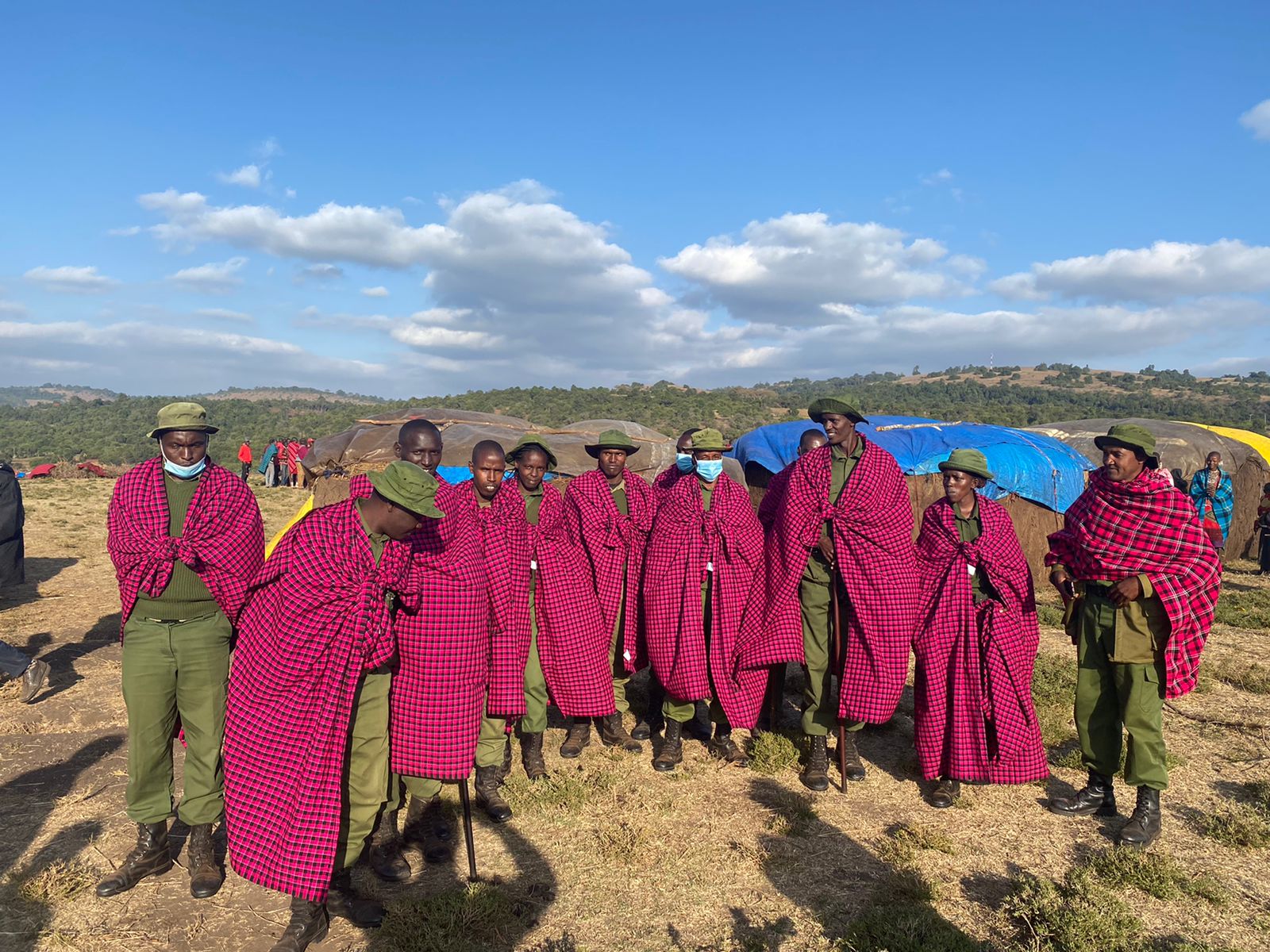
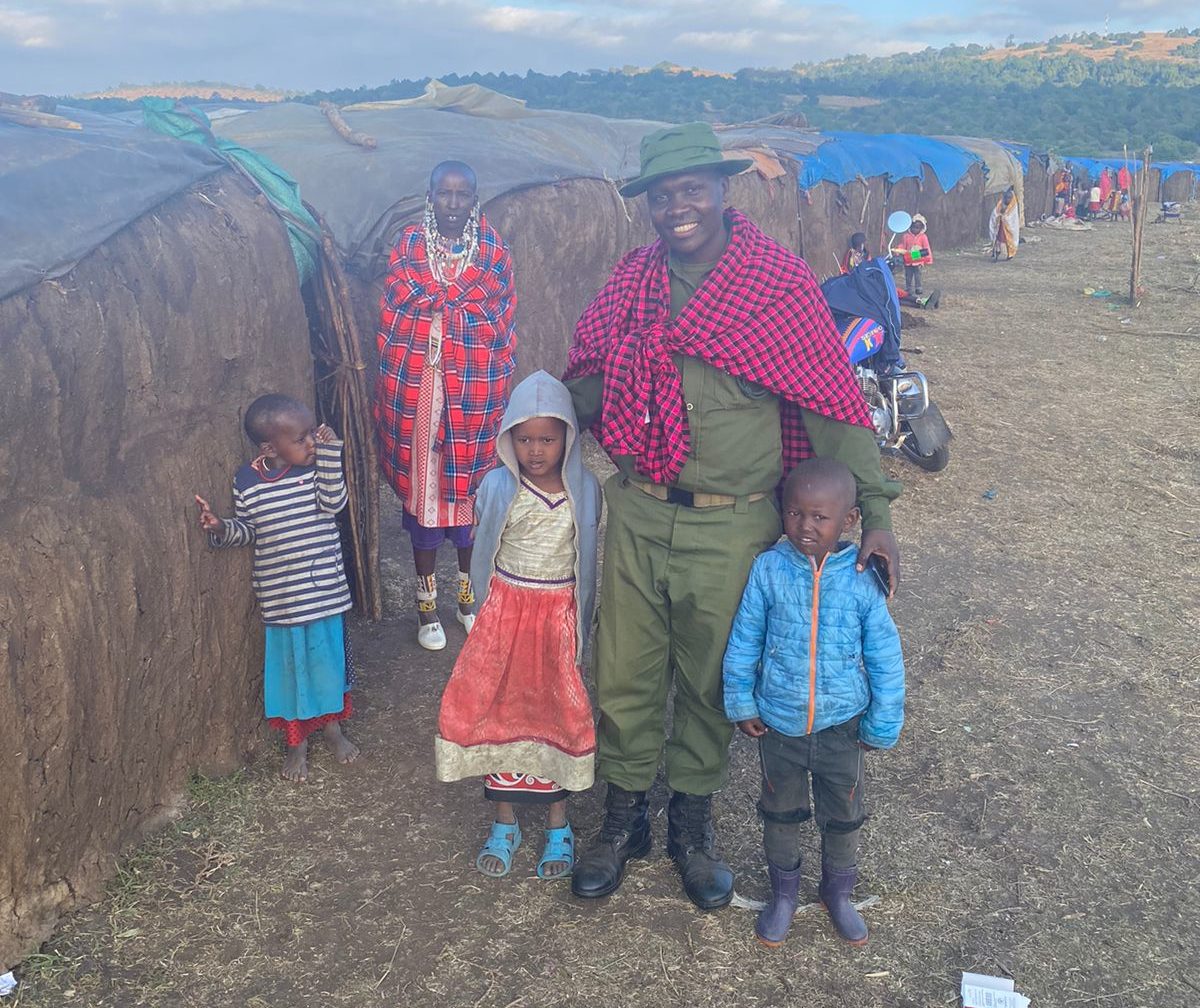
“The manyatta in Maa culture actually demonstrates the beginning and end of an age set and their graduation into being elders. This Loita manyatta included many of the men and women we’ve worked with to protect the biodiversity of the Loita. We wanted to get involved to highlight our successful joint efforts in protecting the Loita’s wildlife and forest, an important water catchment source. We thanked many men, women and children for their support.”
Assistant Senior Warden Jackson Maitai
The MEP leased helicopter was kept busy in the third quarter. In July, elephants residing in the Mau Forest were crop raiding potato farms bordering the forest. A herd of 50, which included the Kenya Wildlife Service (KWS) and MEP formerly collared elephant Max, were raiding nearby potato farms and the MEP leased helicopter was called in on July 16 to push this herd back into the forest and calm the frustrated community. While on the ground, I spoke directly with community members and re-directed one of the Sheldrick Wildlife Trust (SWT) Mau De-Snaring Units to the area to provide more protection for their crops. After leaving the conflict area, alongside a KWS officer, we patrolled the forest from the air and found fresh logging inside the forest. We followed the trail out of the forest and spotted 13 donkeys taking out timber beams and landed and relieved the donkeys of their loads and contacted a ground team to follow up with the recovery.
Aerial patrols in the Mau Forest continued in the third quarter and the leased helicopter was used for rapidly responding to conflict. On August 27, the MEP leased helicopter was used to push a large herd of 70 elephants away from settlements in the Suswa area and KWS and MEP collared elephant Napoleon was in this herd.
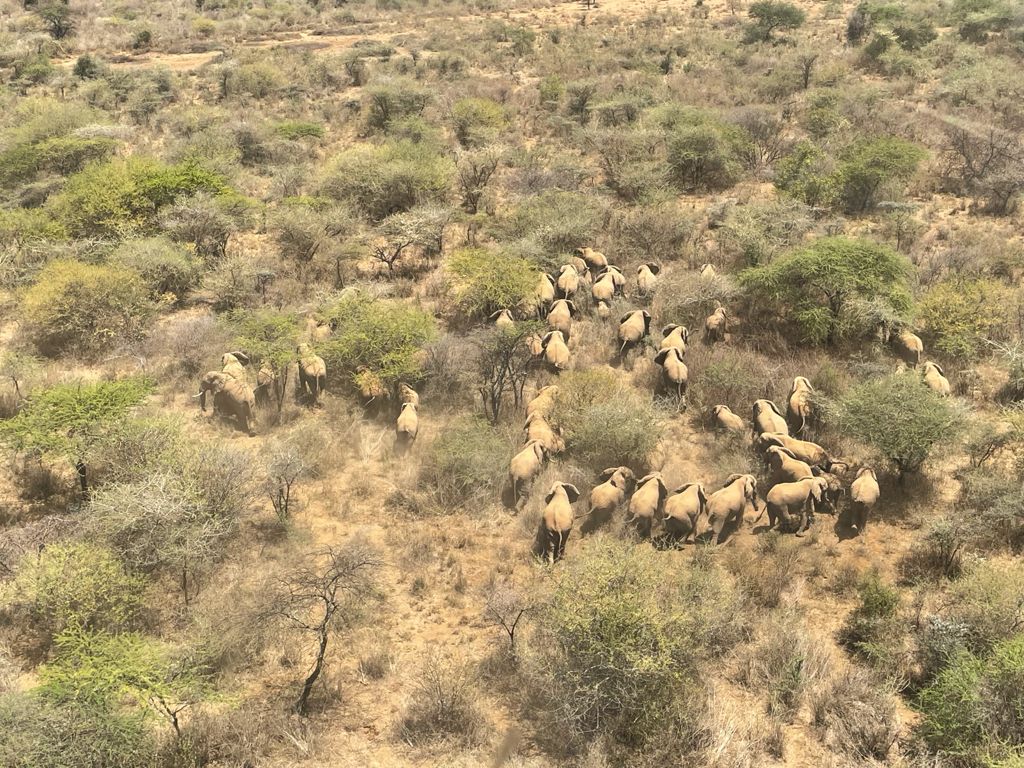

Then, just a few days later on the 30th the helicopter was called in again to push another large herd of 62 elephants out of farms and settlements back into the Nyakweri Forest.
On July 19, the MEP leased helicopter was called in to help assist the KWS / SWT Mara Mobile Vet Unit during the treatment of a bull elephant in Ol Kinyei Conservancy. The bull had a deep puncture wound on his foot that was most likely a result of conflict. He was also hiding in thick cover, so I was called in to push him out into the open and make the darting and treatment safer for both the elephant and staff on the ground. We were proud to partner with SWT and KWS on this successful treatment.
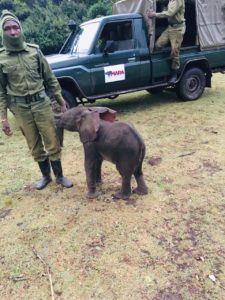 On September 1, the helicopter responded in the Transmara area to a herd of 60 elephants raiding community farms. After hours spent by MEP rangers on the ground to try to push this herd out of the community’s land, they needed back up from the leased MEP helicopter. While moving this large herd back into the conservancy area, a young baby was separated from his mother during the chaos. MEP rangers were on the ground, monitoring the situation alongside me in the air, which allowed them to quickly react to reunite the baby with his mother (pictured left). They picked him up and gave him a lift to his mother who they found nearby and after they were reunited, they continued to monitor the elephants to ensure they were safe.
On September 1, the helicopter responded in the Transmara area to a herd of 60 elephants raiding community farms. After hours spent by MEP rangers on the ground to try to push this herd out of the community’s land, they needed back up from the leased MEP helicopter. While moving this large herd back into the conservancy area, a young baby was separated from his mother during the chaos. MEP rangers were on the ground, monitoring the situation alongside me in the air, which allowed them to quickly react to reunite the baby with his mother (pictured left). They picked him up and gave him a lift to his mother who they found nearby and after they were reunited, they continued to monitor the elephants to ensure they were safe.
In August, I was given the opportunity to travel to Tanzania to support the Tanzania Wildlife Research Institute (TAWIRI) in their efforts to remove elephant collars in the Ruaha/Rungwa Ecosystem and collar elephants in the Swagaswaga area. I really enjoyed my time in Tanzania, the landscape was just beautiful, and working with the team of scientists and vets was very exciting.
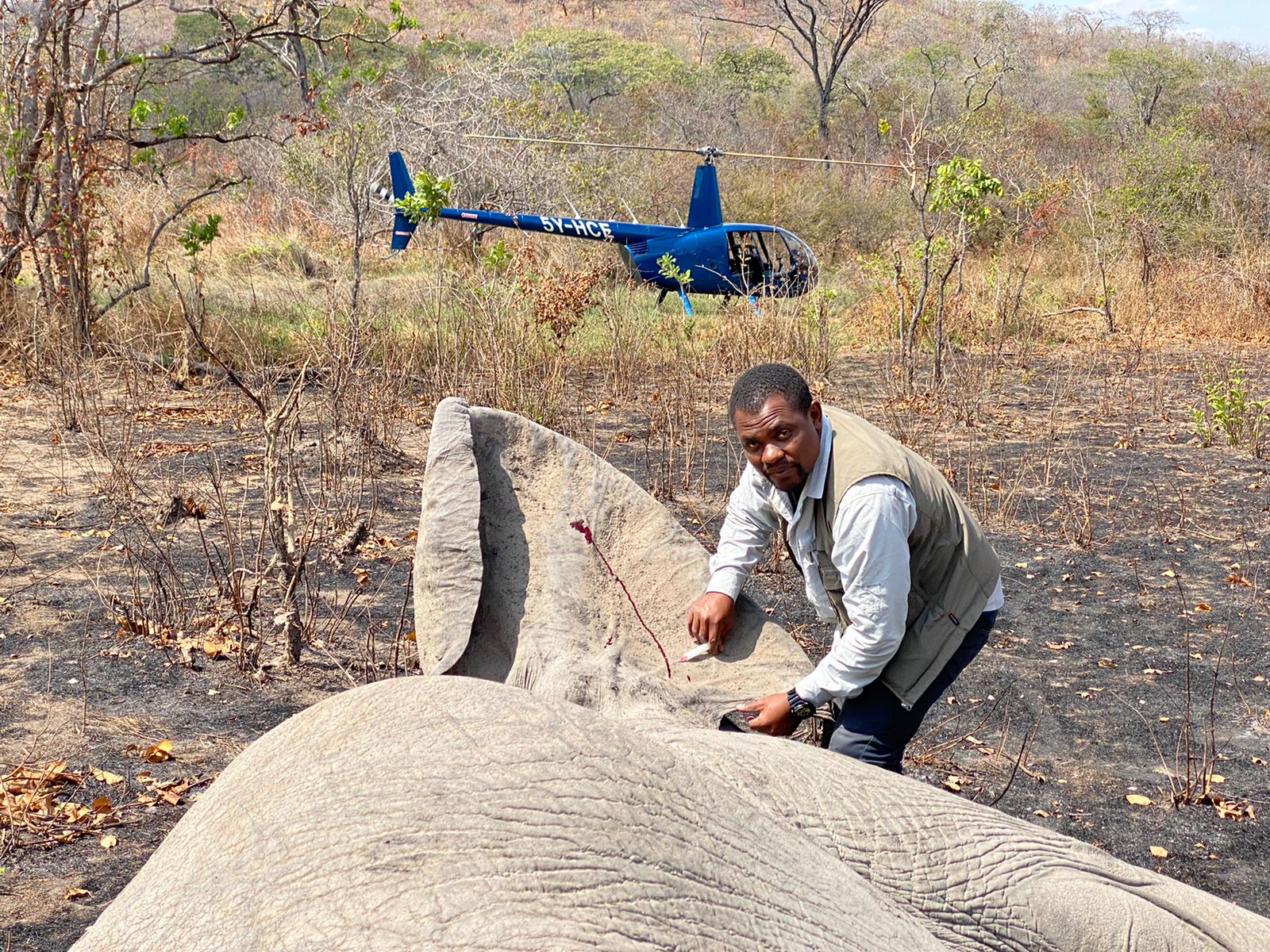
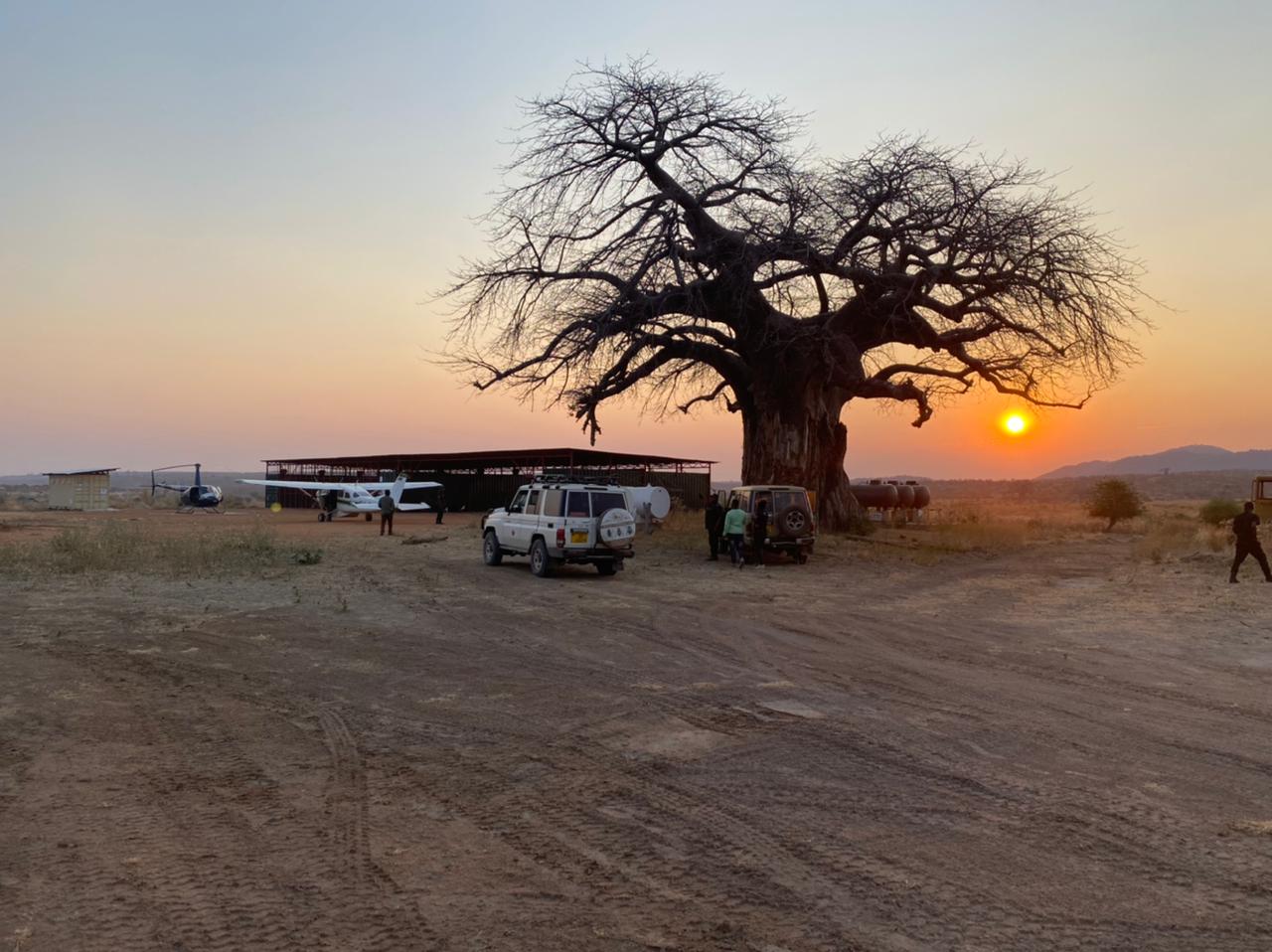

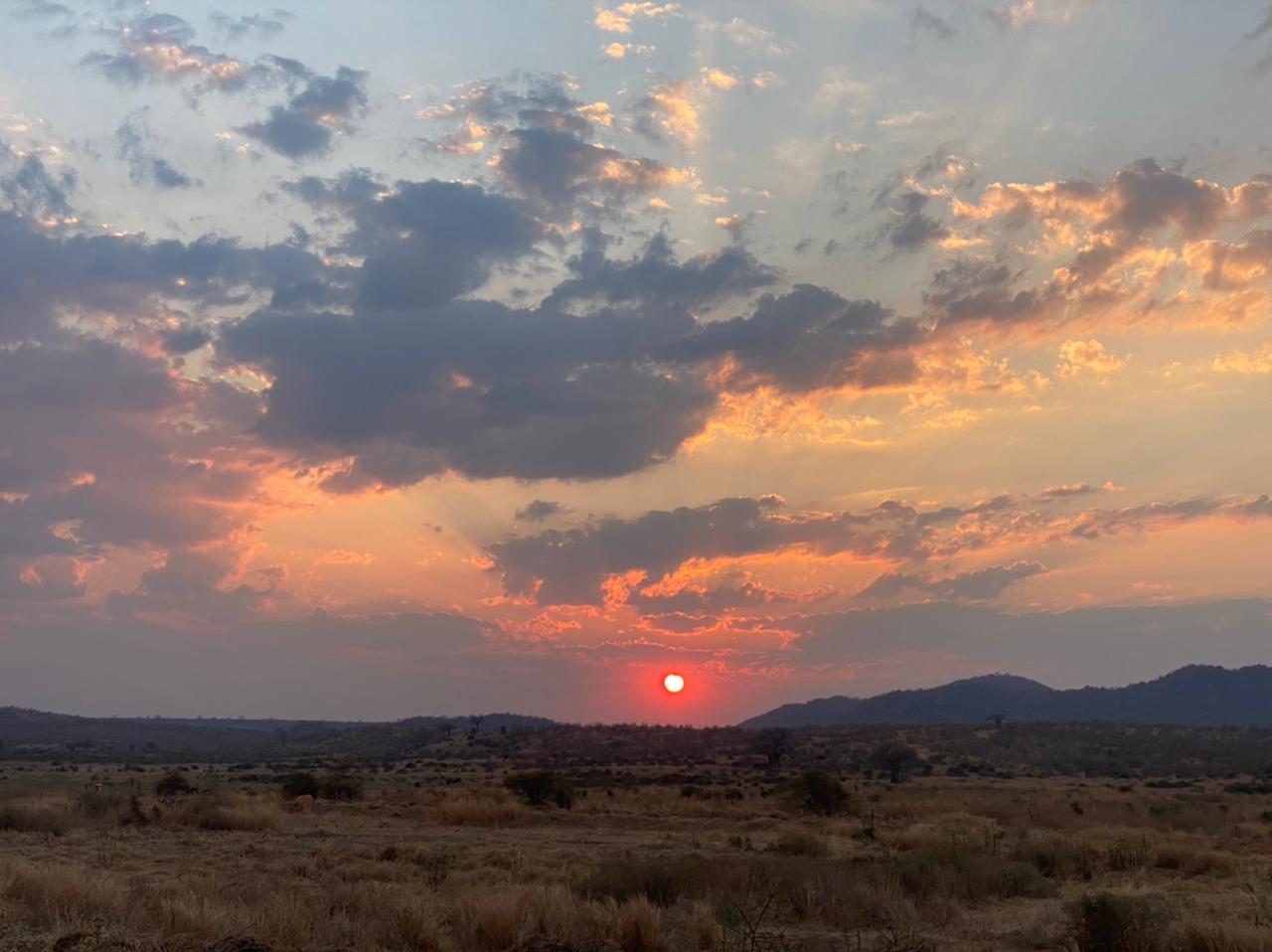
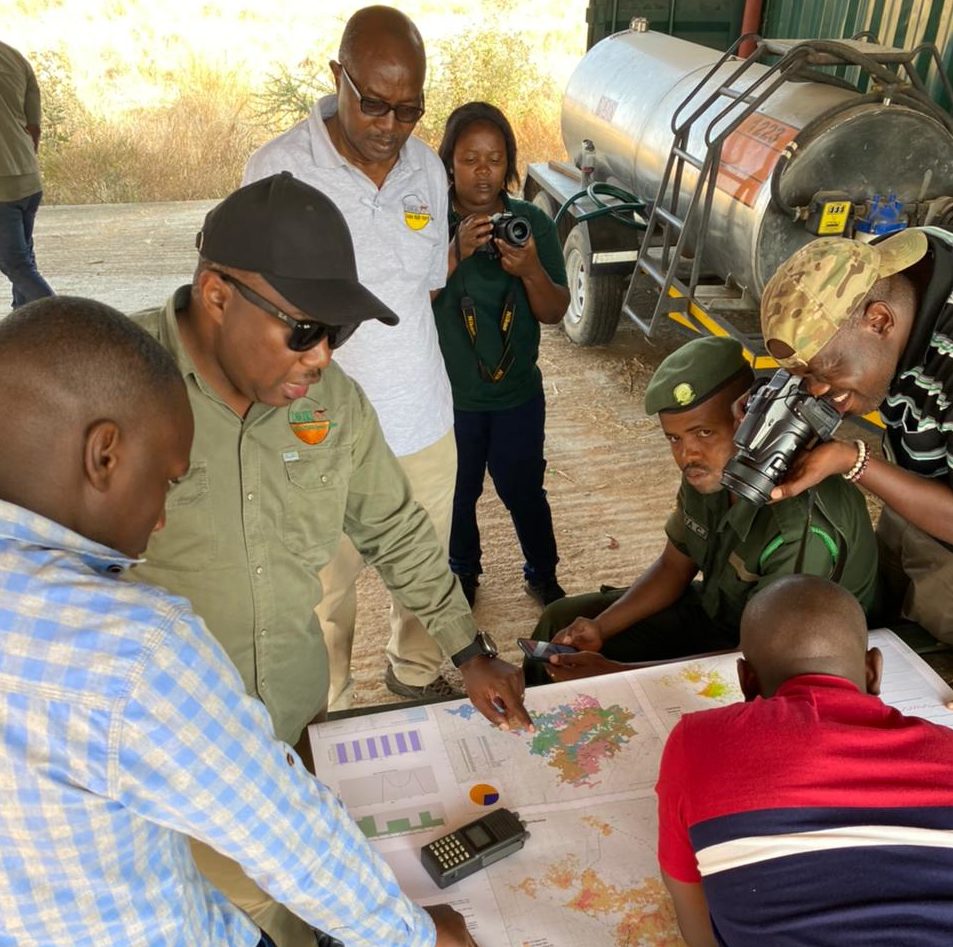
Additionally, in partnership with KWS and the Wildlife Research & Training Institute in Kenya, I went to Shimba Hills and flew the MEP leased helicopter to collar four of the eight planned collars for Shimba Hills. The elephants collared in Shimba will help collect elephant movement data between Shimba Hills, Tsavo and the cross-border movement to Tanzania. We successfully collared the elephants and will complete the second phase of the collaring operation in January 2022.
